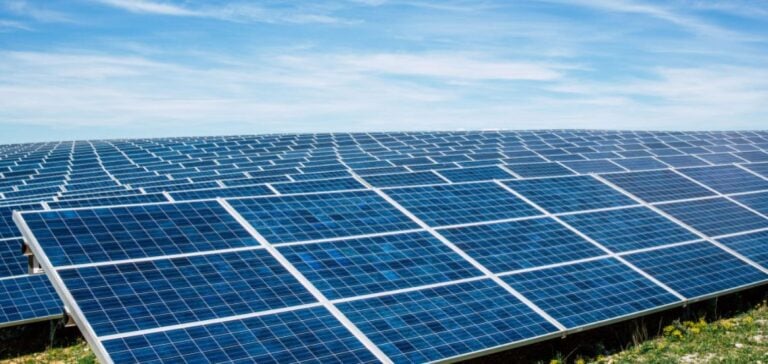A flagship project for the European photovoltaic industry is taking shape with the creation of a gigafactory in Hambach, Moselle. This initiative, led by the European company HoloSolis and supported by a consortium of industrialists, aims to transform a market dominated by Chinese manufacturers. Scheduled to begin production in 2026, the factory will produce over 10 million solar panels annually by 2028, meeting the electricity needs of one million households.
A consortium serving energy sovereignty
HoloSolis, supported by major players such as Technique Solaire, Photosol, CVE, and Tenergie, has launched a fundraising campaign to finance this ambitious project. The initial phase, representing more than one million euros in convertible bonds, completes a total Series A investment of 20 million euros. This project aligns with European energy transition objectives while promoting local reindustrialization.
Jan Jacob Boom-Wichers, President of HoloSolis, emphasized:
“This gigafactory will produce cutting-edge solar panels while reducing the carbon footprint and creating thousands of skilled jobs. It is part of a collective effort to strengthen the European value chain and meet the growing demand for decarbonized solar equipment.”
A commitment to the energy transition
The Hambach gigafactory aligns with the requirements of the Net-Zero Industry Act (NZIA) adopted by the European Union. This regulatory framework mandates that 40% of solar panels installed in Europe must originate from European production sites by 2030. By integrating social and environmental criteria into its tenders and public support programs, France actively supports this dynamic.
Furthermore, HoloSolis incorporates advanced technologies such as robotics, artificial intelligence, and lean manufacturing processes, ensuring competitive production that meets European standards.
Relocation and innovation: a dual ambition
The HoloSolis project aims to achieve two goals: reducing dependence on Chinese imports and positioning Europe as a leader in photovoltaic innovation. The consortium invests in solar panels adhering to strict standards while fostering collaboration with European subcontractors.
This model, combining local expertise and innovation, also benefits from financial and regulatory incentives like those provided by the NZIA. France is adapting its rules to encourage the use of locally manufactured panels, further consolidating its energy strategy.
A driver for local growth
Beyond its environmental impact, the project offers a unique opportunity for regional economic growth. Ultimately, 2,000 direct jobs will be created in Hambach, along with thousands more in related sectors.
HoloSolis also aims to triple installed solar capacity in Europe by 2030, contributing to the goals of the European Green Deal.






















